Kingdom Come: Deliverance II Review
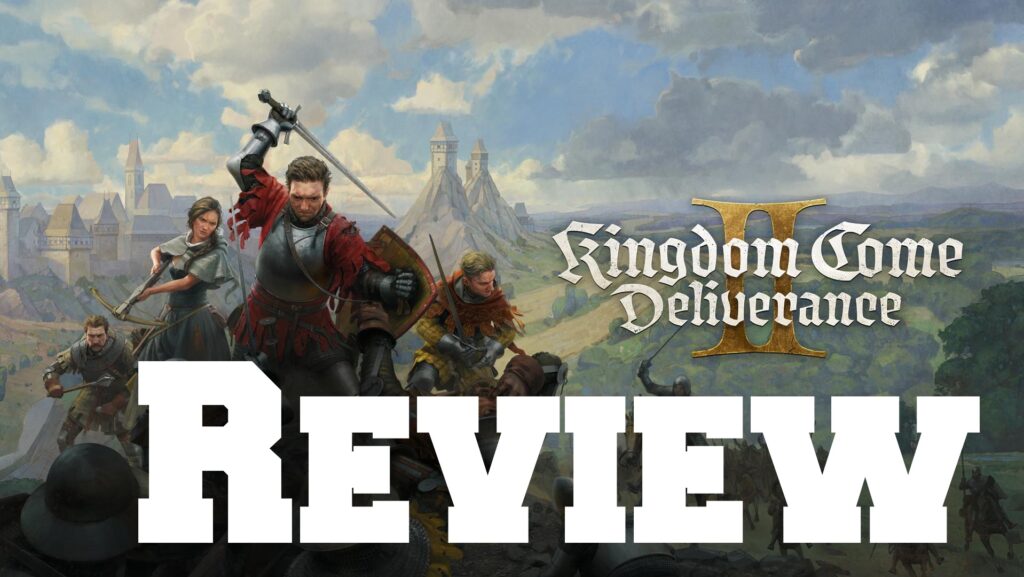
Henry of Skalitz is a 15th Century superhero. Imbued with the ability to dole out justice how he sees fit, he sweeps into towns throughout the Kingdom of Bohemia and solves problems with seemingly supernatural knowledge. No swordsman can match him, no riddle can stump him, no conversation ever seems to go anything but his way.
Sigismund of Luxembourg might hold the throne, and his brother Wenceslas might share his royal blood, but only Henry of Skalitz has actual divinity at his back. He has the monumental breadth of humanity’s knowledge available to him at his fingertips, he can turn back time the instant he makes a mistake and he fights like he can’t die.
Henry is a video game protagonist, one of the most powerful beings in any given universe. The world ceases to exist when he fails, so, unbeknownst to him and all those around him, he literally cannot fail.
Like any fantasy game, the pitch for Kingdom Come: Deliverance II is simple. You start from the bottom, in the dirt, and you rise to glory. Unlike Skyrim or Baldur’s Gate, however, glory in KCD2 is not royalty, or dragon powers. In KCD2, glory is rising up out of the sty you were born in and making a new bed in a haystack.
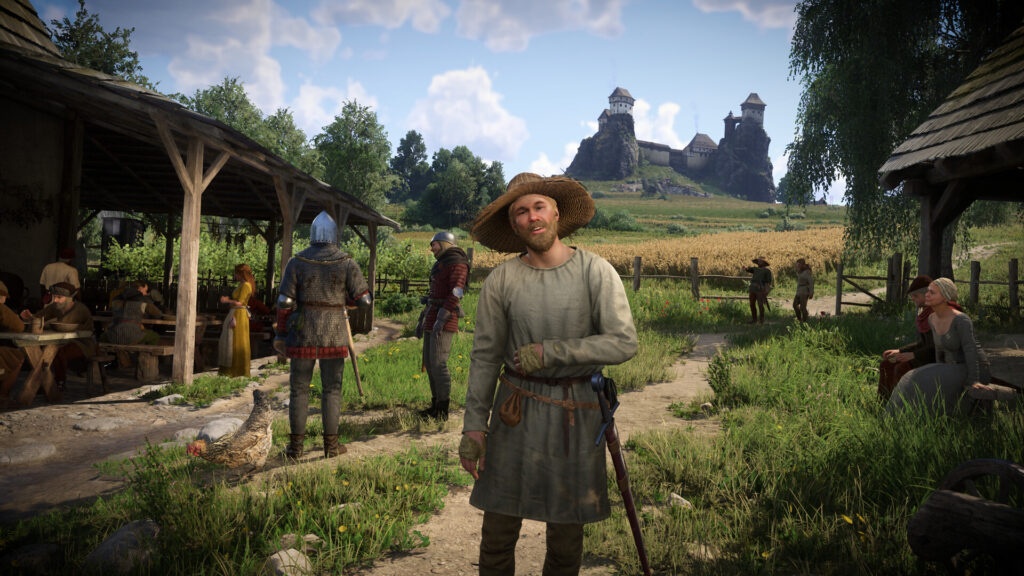
This is because KCD2 is not a typical fantasy game. It takes place in “real life”, or at least a version of it. The events depicted are accurate (to a degree). Sigismund and Wenceslas really did feud over the control of Bohemia, and other historical figures are intimately involved in the events of the game (although the timeframe might be adjusted somewhat).
But Henry is still a fantastical being in this world because it is a game. And so in an odd way, KCD2 is a fantasy game.
And yeah, yeah, “just because you’ve recontextualised video game functions to resemble super powers doesn’t make KCD2 a fantasy game.” Actually I can do whatever I want and you can’t stop me. It’s one of my super powers in the fantasy game I call life.
But seriously, I was a handful of hours into KCD2 when I wondered if there maybe should be fantastical elements in the game?
After all, people in these worlds believed in fantastical things. “A wizard did it” was actually a reasonable excuse in 15th Century Bohemia. The quest that got me thinking this way in particular saw me hunting down the magical axe of a water goblin.
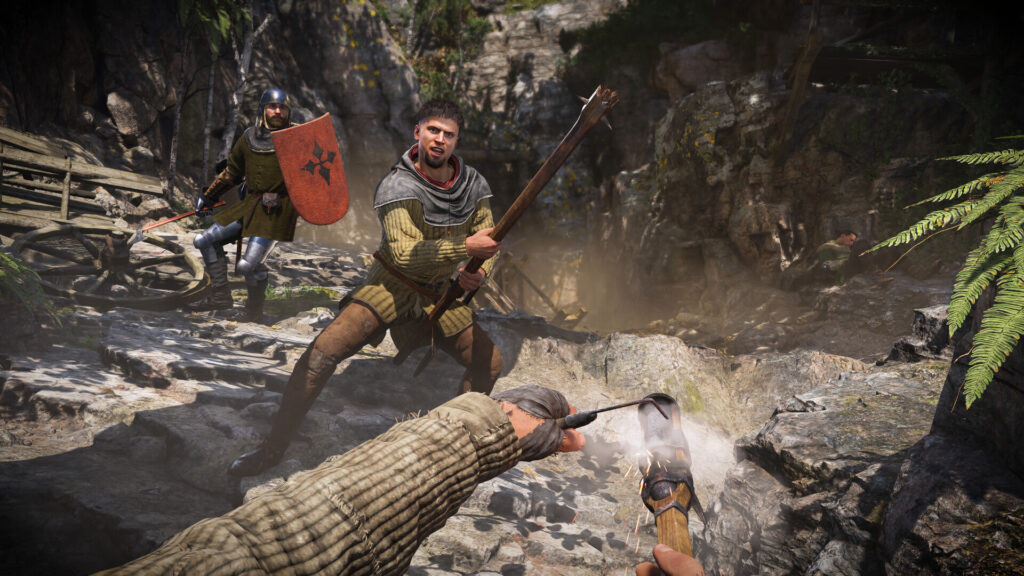
See I’d been roaming around the first map of KCD2 (surprise, there’s two maps) trying to find anyway at all to increase my standing in the world. And a guy at a bar told me the tall tale of a woodcutter who saw a water goblin and was so startled that he dropped his axe in the water. And the water goblin, for some reason, returned a higher quality axe to the man.
So there are two possibilities here, right. If water goblins exist, then there’s no reason why they might not be the sorts to trade one axe for a similar one of higher quality, like a sentient horadric cube. But if they don’t exist, then this dude stole a good axe and made up a story about it, right? Maybe he caught some wandering merchant by surprise, or maybe it ‘fell off a wagon’, but whatever the truth of it is, he didn’t get an axe upgrade out of nowhere.
And yeah, yeah, “why are you fixated on this? It’s some flavour text about an axe. Who gives a fuck?” But I found the axe. The rest of the story at the tavern describes a series of events that name enough landmarks that I was able to track down the axe. And it’s a great axe. Finding that axe legitimately changed everything for me in KCD2. I went from running away from any fight with more than one person and taking forever to take down a single foe to suddenly being able to drop armoured enemies quite quickly. And because I could drop armoured enemies, and because you can take the armour off fallen foes, that meant I very quickly went from vulnerable to powerful.
The myth of the axe’s good fortune was as true for me as it was for its original owner (to a point)—if enchanted (figuratively speaking) items can exist, couldn’t enchanted creatures? Couldn’t a water goblin be real?
And what I landed on is this—if magic beings are real in Kingdom Come: Deliverance 2, then I should play the game like a person who exists in its world. If they don’t, then the magic at Henry’s fingertips is me, the puppeteer pulling his strings, and I should play KCD2 wielding that sorcery to its maximum potential.
What I found is that, outside of a few instances, magic is not real. And so Henry became more powerful than anybody could imagine.
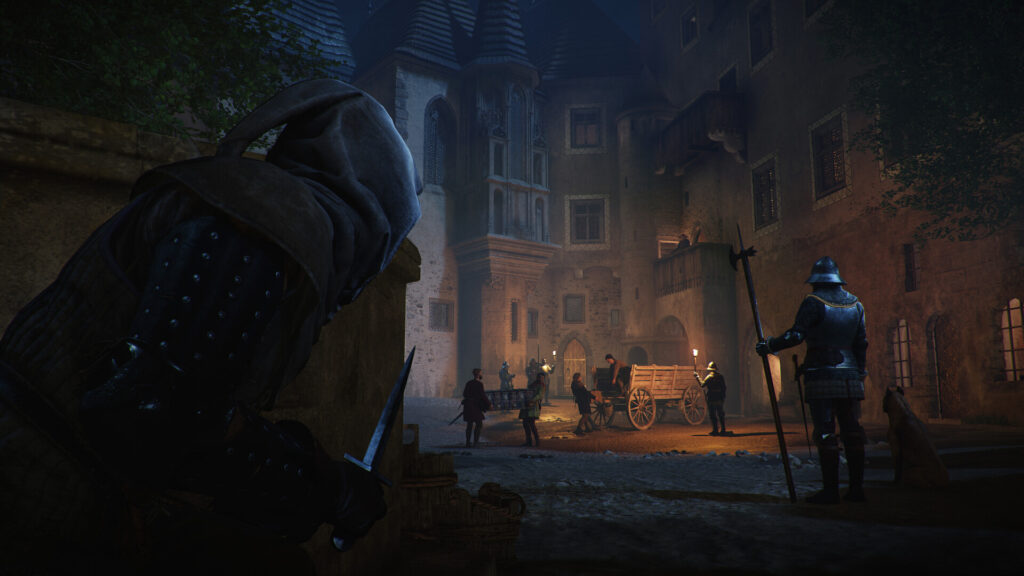
Upfront I should mention that saving in Kingdom Come: Deliverance 2 is not handled in the usual way. You can’t simply save whenever you like. If you find yourself on the precipice of a potentially idiotic decision, by design you have two choices. You can live with your mistakes, or you can drink a Saviour Schnapps (provided you have one handy).
In your typical Im-Sim-Lite/RPG, you’d simply Quick-Save/Quick-Load if you weren’t sure how something was going to play out. That’s not possible in Kingdom Come: Deliverance 2—or at least, it’s not in theory.
Because there are three other ways the game will Save. One—if you sleep in a bed you “own”, your game will save when you wake the next morning. Two—if you reach a point of importance in a major questline, the game will save for you. And three—when you quit the game, Kingdom Come: Deliverance 2 saves.
I have a fast computer. An m.2 drive, a good graphics card, a CPU that is still kicking goals. If I told you the slowest part of quitting out of and then reloading KCD2 to circumvent its annoying Save system was waiting for the Steam Cloud to Sync, how do you think I’d have come across that information?
Let me be clear about something. I don’t hate the Saviour Schnapps system. I hate the alchemy system, a tedious mini-game that resembles but lacks the charm of real cooking, but I think the Saviour Schnapps mechanic is kind-of cool. But it’s far, far too easy to circumvent. And I already presented my justification for making Henry into a omnipotent, omniscient being.
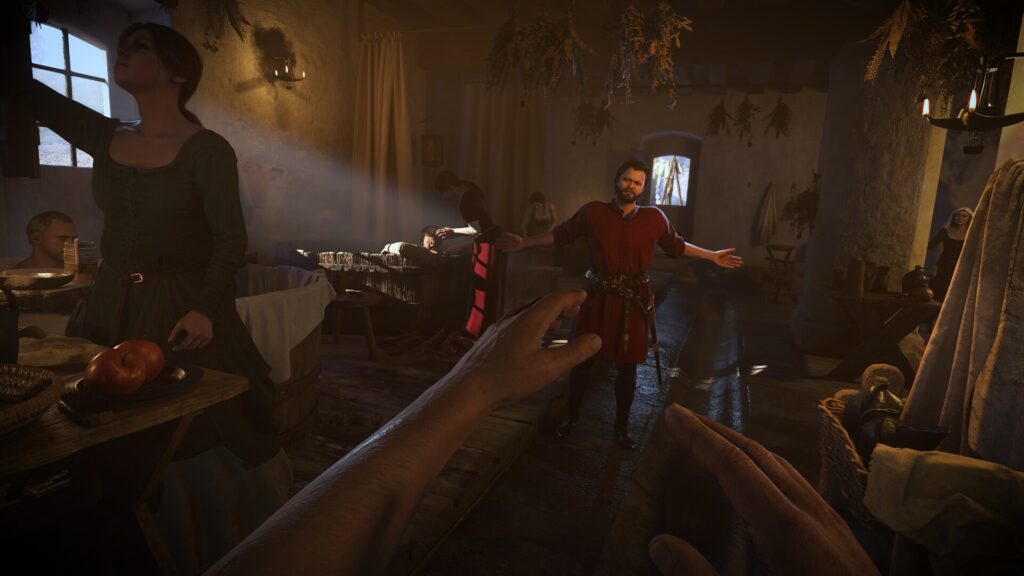
The game is more fun my way, or at least I felt it was. I already thought it was pretty fun, too. But there’s something about busting into every single person’s house, rifling through all of their things, not stealing anything and just knowing what they’ve been up to.
Knowing everything is the only real way to get the most out of KCD2 anyway. You spend a great deal of the game playing detective. It’s amazing how a game can send you halfway across your known world to collect some mcguffin and it won’t seem like a fetch quest if there’s enough story attached to it.
Tired: Collect 15 Saltpetre
Wired: Travel to different cemeteries around the map until you find an open mass grave where saltpetre deposits have been forming. By the by, we need 15 units of the stuff.
Warhorse, like me (and by extension Henry) has the advantage of centuries of knowledge and a vast research mechanism, and it utilises it to its fullest extent with KCD2. The writing is fantastic, often measured and intelligent in a modern sense while still sticking to its historical limitations. As Henry we get the opportunity to diagnose a man with depression—but as Henry we explain it as a function of vital humour imbalance, as a learned 15th Century might.
We meet a man from Mali, and Henry isn’t some spectacular picture of acceptance when he first encounters him. It’s handled fairly realistically—Musa is a character with an interesting story to tell, who has found himself in a tricky situation and the player is able to decide his fate. It’s indicative of how the game works across an array of its questlines—starting with a single interesting idea and layering more and more upon it as you go.
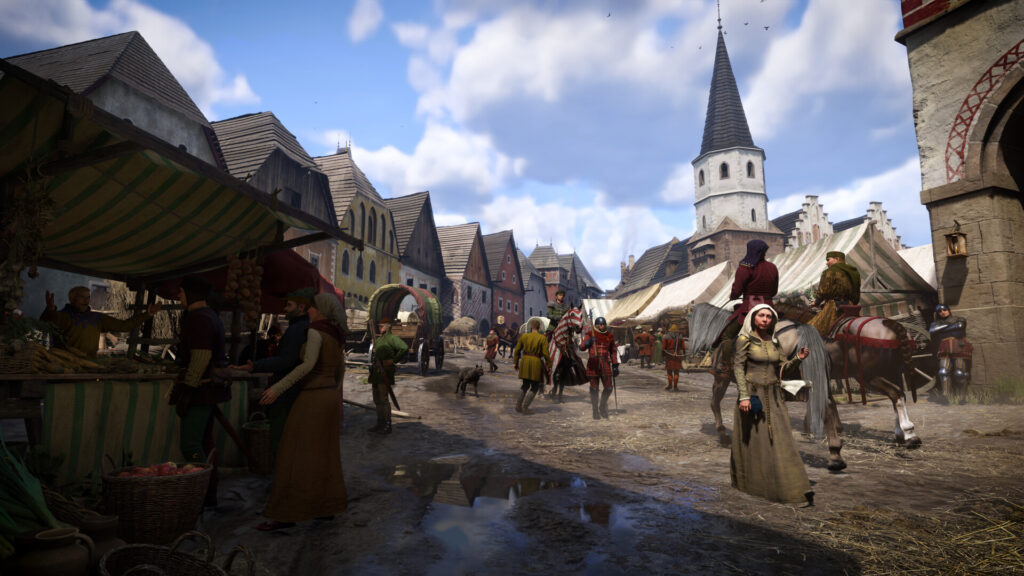
There’s one particular questline I can’t get out of my head, because I’m certain I solved it incorrectly, even if justice was done. That, to me, is confidence. Because of the save system, and because of how deep into the game this particular quest was, I can’t simply go back and revisit it to see if there was a different solve, but based on my testing with other quests, there probably was.
Speaking of detective work, the game world itself is alive enough to keep track of your presence. If NPCs see you in a space and then later notice a bunch of stuff is missing, they’ll tell the guards. If you wear gear you stole from them around them, they’ll tell the guards. There’s an intelligence here that makes the world feel alive, and forces you to think about your actions a little. If you do want to rob a town, you’ll have to head to a new one to pawn the gear—and a new town means new quests, new adventures and, of course, new people to rob.
If KCD2 has any weaknesses, it’s ironically in its action sequences. I found myself hard stuck near the end of the game when I couldn’t get my horse—I believe the best (or at least most expensive) horse in the game—to catch another in a chase sequence. To get through the mission, I had to exploit a horseriding perk that saw me bringing my horse to a complete stop every 10 seconds to take advantage of a Mario Kart style launch-off turbo boost mechanic.
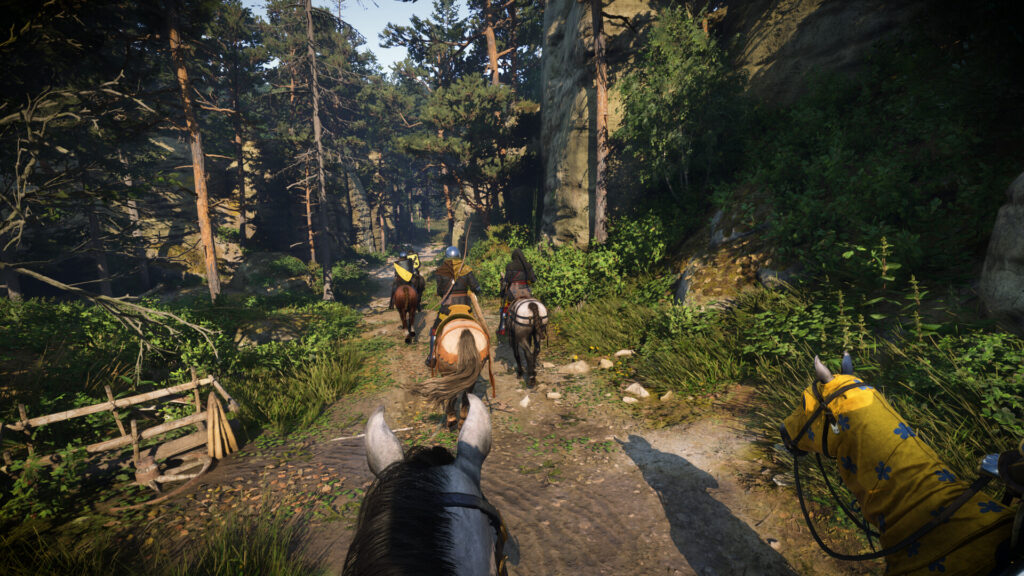
I know of another games critic who nearly came undone at the mid-point of the game when they weren’t able to kill enemies quickly enough. Having just gone through a lengthy stealth mission that to me represented a staggering spike in difficulty (which might have been near impossible if I hadn’t stocked up on Nighthawk potions by chance earlier, mind you), they didn’t have weapons equipped to deal with armoured soldiers, and so they struggled mightily.
The combat makes sense, but it’s quite tedious in practice. With a sword, you can pick a cardinal direction to attack from—selecting the correct direction allows you to strike, selecting incorrectly will allow your enemy to block. Until you get the ‘Masterstrike’ ability, combat generally revolves around parrying until your opponent runs out of stamina. Then you hit them once or twice and you start over again.
Once you have the ‘Masterstrike’, combat revolves around waiting for them to attack so you can utilise the ‘I win’ button. There’s still a little mechanical skill required to pull off the technique, but it does trivialise things pretty significantly.
Still, I found myself getting into fights often. It’s not complicated—KCD2 is a power fantasy, and you literally start out in the mud. Winning a grand tournament in the region’s capital without losing a single round is a testament to how far you’ve come.
KCD2 takes some time to get good, that much is true. The first couple of hours, while it is tutorialising and setting the scene, and contextualising your place in the world, they’re a bit of a slog. But when it’s good, it’s so damn good.
I spend a lot of time thinking about how Henry of Skalitz doesn’t belong in his time. It’s ironic, I think, that Henry should be an anachronism when he is inarguably the star of a game that it is itself of a different time. If Kingdom Come: Deliverance II had come out 20 years ago, I think it would be an all-time great. Mentioned in the same sentence as S.T.A.L.K.E.R., reminisced upon wistfully by people who would recommend it wholeheartedly, ‘but with some mods’.
But 2025 is not 2005, and the audiences of today are not as willing to invest their time in a game as they were two decades ago. Back in 2005, Steam only existed on people’s computers because they couldn’t play Counter-Strike without it. People still cursed Gabe Newell’s hubris. If you wanted to play a different game, you had to go down to EB, or rent something from Blockbuster.
In 2025, if a game doesn’t blow you away in the first two hours you head to help.steampowered.com and you refund it. There are literally thousands of other games at your fingertips waiting to take that money you just got refunded. In 2005 if you took a game like STALKER or KCD2 home and you hated the first hour of it, what were you going to do? Head back down to the shops to return it? Or play it for 6.9 days and then take it back to EB Games to make full use of their 7 Day Return window?
Some games need the 7 Day Return Window. Some games need you to invest in them, to trust in them to become great. And that’s a tough ask these days, I get it. But Kingdom Come: Deliverance II is worth it. You don’t have to trust it. Trust me. Have I ever steered you wrong?
Kingdom Come Deliverance 2 is available now on PlayStation 5, Xbox Series S and X and PC. Here’s a Steam link.

